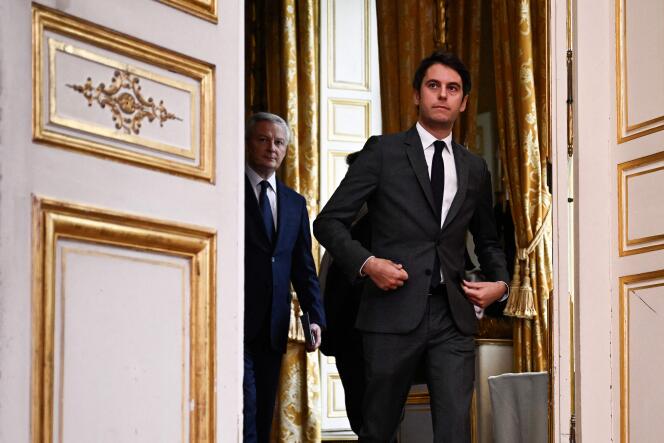


They had originally planned to "starve Paris." But some of the farmers determined to lay siege to the capital to demonstrate their rage against the government and city-dwellers, eventually walked back their position on the evening of Thursday, February 1, with the feeling that they had been "heard" by the government. At around 8:30 pm, the tractor convoy that had set off from Agen, near Bordeaux, to block the Rungis wholesale food market near Paris region headed back southwest.
On the A89 highway, the roadblocks around Lyon were lifted. On the A7, to the city's southeast, the road was being cleared, while the A6 was expected to be freed up by midday on Friday. In the west of the country, most roadblocks were coming to an end, following calls from the FNSEA and Young Farmers (JA) farmers' unions. "The atmosphere is rather favorable," a source in the prime minister's office said.
Two weeks after the start of a spontaneous and diffuse farmers' revolt, symptomatic of the deep unrest felt by the sector, Prime Minister Gabriel Attal hoped to have contained the movement before it got out of control. His third set of measures – following an initial round announced on Friday, January 26 – struck a chord with the powerful FNSEA, even if it meant angering environmentalists.
At a press conference on Thursday after hours of talks with farmers' representatives, the prime minister agreed to most of the union's demands. He promised to "liberate" and "protect" farmers, recalling president Macron's original slogan to defend productive agriculture, protecting it from the "laws of the jungle."
Having received little attention since 2017 – with Macron's policies focusing more on industrial production – agriculture has suddenly become viewed as a precious asset by the government. It is a sector representative of the "French identity," according to Attal, who had referred to a "French agricultural exception" during his government policy statement on Tuesday. "Our French agricultural exception is not a question of budget, but of pride and identity," he insisted on Thursday.
To combat the disappearance of this rural sector, food "sovereignty" is to be enshrined in law, setting targets for it, the prime minister announced. "The war is there," Macron stated on the same day from Brussels, on the sidelines of a European Council meeting, as he defended "an agricultural policy that enables [us] to produce more," pledging to "phase out pesticides through research."
You have 65% of this article left to read. The rest is for subscribers only.
